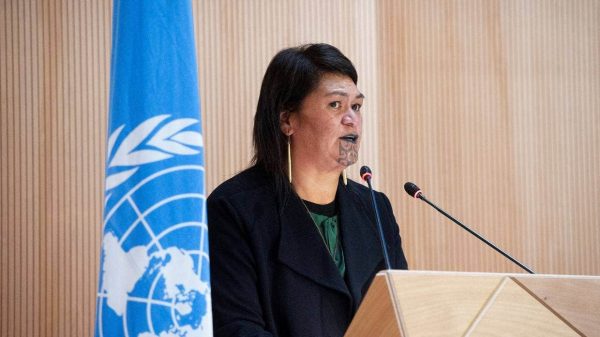In a move prompted by NZ’s government own in-house advisers, and those like Abbas Nazari, NZ doubles it’s previous donation to Afghanistan’s Islamic State. NZ gives Taliban another $6M

New Zealand has pledged another $6 million to help get food into Afghanistan amid growing fears of a looming famine in the worn-torn country.
“We need to ensure that we do not lose sight of the scale and severity of humanitarian need in Afghanistan in light of new and emerging crises elsewhere around the globe,” Foreign Minister Nanaia Mahuta said, announcing the funding in a virtual address in Geneva on Saturday morning (NZT).
“The levels of severe food insecurity facing Afghan communities are dire, with 8.7 million Afghans at risk of famine-like conditions this year.”
Half the funding would be sent through the UN World Food Programme, with the rest going to the UN’s Food and Agriculture Organisation.
Mahuta said the two organisations had strong networks in the country and came with international assurances they’d be able to get food on the ground.
The concerns over famine in Afghanistan have heightened with a looming winter.
The aid comes in addition to another $6 million donated by New Zealand since the Taliban took back power of Afghanistan in August later year.
About 1450 citizens, permanent residents and Afghan visa holders have also been evacuated to New Zealand.
Mahuta said the Government remained concerned about human rights conditions for Afghan citizens, particularly women and girls.
Taliban hardliners have been turning back the clock in Afghanistan with a flurry of repressive edicts over recent that hark to their harsh rule from the late 1990s.
Girls have been banned from going to school beyond 11-years-old, women are barred from boarding planes unless with a male relative. Men and women can now only visit public parks on separate days, and international media broadcasts and foreign drama series have been taken off the air.
“New Zealand doesn’t recognise the Taliban. But in relation to access to capital, there would be a strong inclination from the international community around what signals would be necessary to indicate that, for example, women and girls are able to access education,” Mahuta said.
Fear of famine spurs $6 million of New Zealand food aid in Afghanistan
